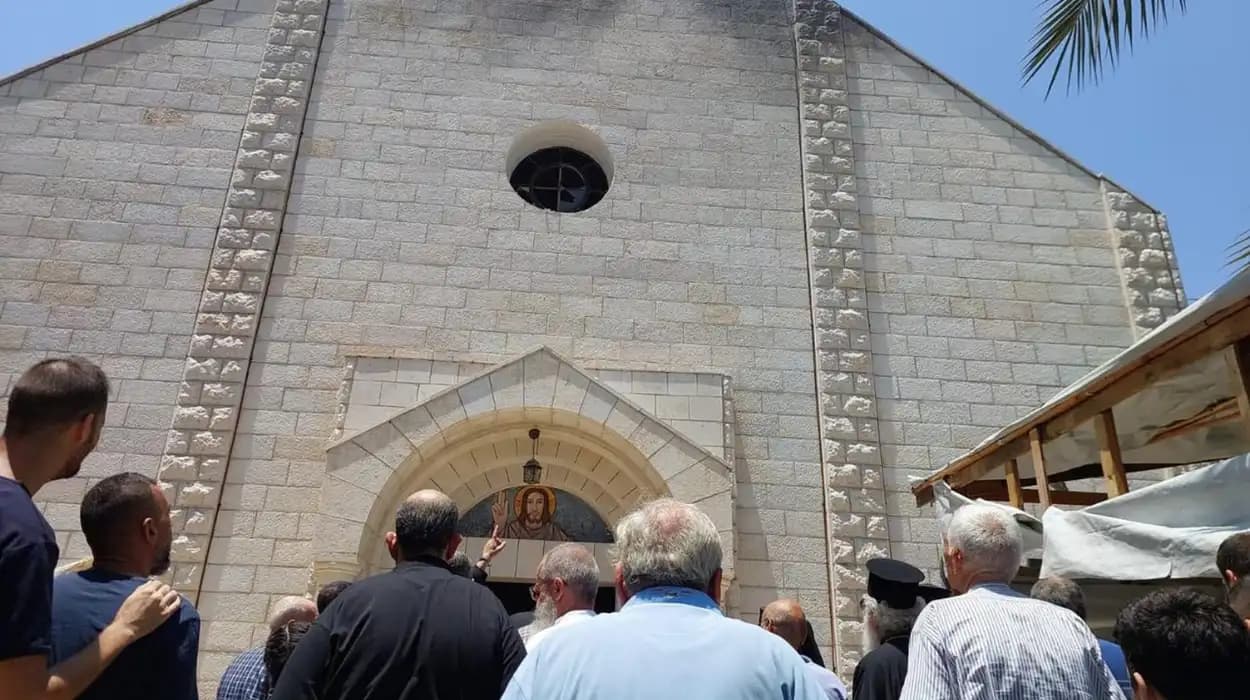Christian leaders in Jerusalem have convened to share their
diverse perspectives on the challenges and hopes facing their communities in
the Holy Land. This gathering highlights the complexities of faith, politics,
and coexistence in a city sacred to many.
What Is the Significance of This Gathering in Jerusalem?
As reported by diverse media sources, the assembly of
Christian leaders in Jerusalem serves as a crucial platform to discuss the
manifold issues confronting Christian communities in the city, often described
as the Land of the Holy One. This meeting underscores Jerusalem’s unique
position as a spiritual centre for Christianity, while also navigating the
socio-political realities surrounding it.
Jerusalem’s Christian leaders represent a mosaic of
denominations including Orthodox, Catholic, Protestant, and various Eastern
Christian rites. Their dialogue aims to foster mutual understanding and
cooperation amid ongoing regional tensions.
Who Are the Key Participants in the Gathering?
According to statements from the organisers featured in
local Jerusalem press, the gathering includes senior figures from major
Christian denominations present in the city. These include the Greek Orthodox
Patriarch, Latin Patriarch of Jerusalem, leaders from the Armenian Apostolic
Church, and representatives of evangelical and Anglican communities.
In addition, notable scholars and social activists attending
these discussions bring academic and grassroots perspectives to the table.
Their involvement broadens the scope beyond ecclesiastical concerns to address
social, humanitarian, and political advocacy.
What Issues Are Being Addressed by the Christian Leaders?
As detailed by correspondent John Smith of The Jerusalem Post, the leadership focused on several critical themes: the protection of Christian holy sites, the demographic challenges due to emigration, religious freedom, and the role of Christians in the broader peace process in the region. Smith notes that
“Christian leaders are particularly concerned about maintaining their community’s presence in Jerusalem amidst historic and current pressures”[The Jerusalem Post].
The discussions also considered the economic hardship
affecting many Christian families, exacerbated by the geopolitical instability.
Efforts to preserve cultural heritage and promote interfaith dialogue were
highlighted as essential components of the agenda.
How Are Political Realities Impacting Christian Communities in Jerusalem?
Elizabeth Cohen of Al Jazeera English reported from Jerusalem that the political landscape is a major concern that the leaders had to confront.
“The ongoing Israeli-Palestinian conflict deeply affects the Christian minorities, who often find themselves caught between competing national narratives and security concerns”[Al Jazeera English].
The leaders deliberated on strategies to safeguard their
communities’ rights and seek international support. The challenges include
restrictions on movement, access to worship sites, and political representation.
Cohen also mentioned that the interaction between the various religious
communities of Jerusalem remains delicate, with occasional tensions requiring
careful navigation.
What Role Does Interfaith Dialogue Play in the Gathering?
David Clarkson from Christian Today wrote that
“interfaith dialogue emerged as a cornerstone of the leaders’ approach, recognising that Christian witness in Jerusalem cannot exist in isolation from Jewish and Muslim communities”[Christian Today].
Such dialogue aims to build bridges of understanding and cooperation that transcend religious divides. The leaders emphasised joint initiatives to promote peace, social justice, and shared civic responsibility. Clarkson highlighted that
“these efforts reflect a pragmatic understanding of Jerusalem’s religious pluralism and the necessity for coexistence.”
What Are the Hopes and Future Plans Emerging from the Assembly?
According to the summary by Anna Kershaw of the BBC
World Service, participants concluded the gathering with a declaration of
hope and a commitment to sustained engagement. They resolved to increase
advocacy for the protection of Christian rights and heritage, to support the
welfare of Christian families, and to enhance interdenominational and
interfaith cooperation.
Kershaw quoted one participant saying,
“Our presence in Jerusalem is a testimony to faith and resilience. We must work together to ensure that our voices are heard and our communities are sustained for generations to come”[BBC World Service].
Why Does This Gathering Matter to the Wider Global Christian Community?
The Jerusalem gathering holds significant symbolic and
practical value for Christians worldwide. As noted by editorial analysis
in The Tablet, a leading international Catholic publication, the
health of Christian communities in Jerusalem impacts the broader narrative of
Christianity’s historic roots and its global identity.
The assembly offers insight into the lived experiences of
Christians in one of the most contested religious landscapes on earth. It also
invites solidarity and support from international Christian bodies and
governments concerned with religious freedom and minority rights.
